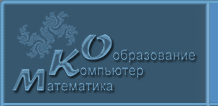|
|
Архив публикацийOn the use of computer game engines in physics, mathematics and computer science educationUnited Kingdom, Worcester There is a clear and apparent downwards trend of recruitment to courses at University and Secondary School levels within the U.K. within the fields of Physics, Mathematics and Computer Science. This trend is worrying, since it suggests that the backbone of our engineering and manufacturing base is under threat. Manufacturing, commerce and productivity are all based upon a solid understanding of the physical world which traditionally has been provided by natural sciences and mathematics. Meanwhile, our youth seems to be consumed by a desire (which may be justifiable) to engage with “Computer Games”; indeed, the games industry is one of the fastest-growing commercial activities within the U.K. In this paper we propose that the locus of physics, mathematics and computer science education is poised to shift from the “classical” approach of laboratory experimentation and “theoretical” paper-bound exercises to an embodiment within the development of realistic computer games and immersive environments. The construction of virtual worlds is engaging: Work with our undergraduate students at Worcester, and with pupils from local secondary schools has shown that both students and pupils are able to appreciate, and learn those principles of mathematics and physics which are relevant to the construction of virtual worlds according to their own desires to design. Within a “Games Programming” module at the University of Worcester, we have exposed our students to the fundamental concepts of mathematics and physics, but situated within the context of developing a realistic game. |

